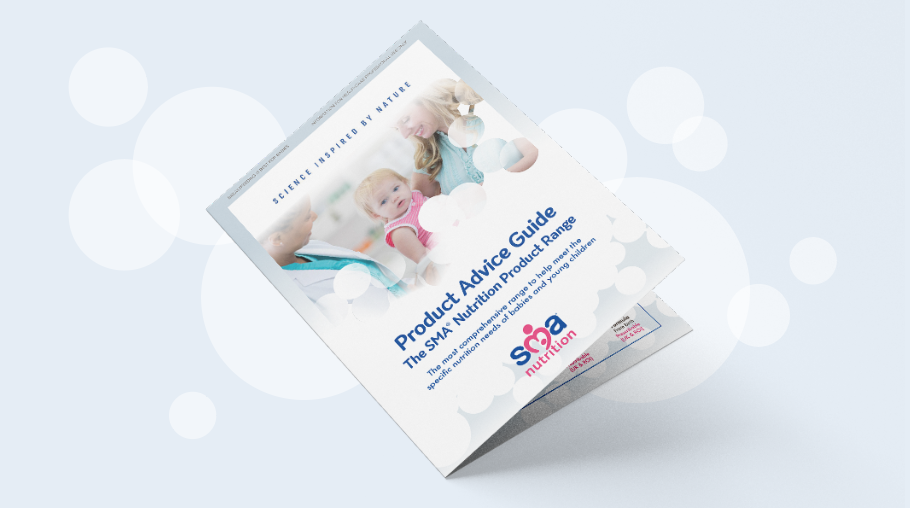Update your knowledge to provide expert service
See modules for details of our prize draw.

The nutritional options available during a baby's first 1,000 days for mothers who cannot or choose not to breastfeed
10 min learning module

Why vitamin D is important during the first 1,000 days of life, and its impact on childhood and longterm health
10 min learning module

How to advise parents of preterm infants on their baby’s unique nutritional needs to help them achieve catch-up growth and help close developmental gaps
10 min learning module
Useful resources
SMA® Nutrition believes community pharmacy can be a valuable and accessible
source of advice for parents and has produced a range of resources to support you:

SMA® Nutrition Careline (0800 081 8180)
A support line for healthcare professionals and parents, available 24/7, 365 days a year. Call, email, live chat or request a visit from a local representative. Information is provided on a range of topics relating to infant nutrition including breastfeeding, feeding issues and product information. The live chat service is available 9am-5pm, Monday to Friday. www.smahcp.co.uk

SMA® Professional is a website for healthcare professionals that offers evidence based information relating to infant nutrition, including practical support, bitesize learning and product information.
Visit www.smahcp.co.uk
IMPORTANT NOTICE: We believe that breastfeeding is the ideal nutritional start for babies and we fully support the World Health Organization’s recommendation of exclusive breastfeeding for the first six months of life followed by the introduction of adequate nutritious complementary foods along with continued breastfeeding up to two years of age. We also recognise that breastfeeding is not always an option for parents. We recommend that healthcare professionals inform parents about the advantages of breastfeeding. If parents choose not to breastfeed, healthcare professionals should inform parents that such a decision can be difficult to reverse and that the introduction of partial bottle-feeding will reduce the supply of breast milk. Parents should consider the social and financial implications of the use of infant formula. As babies grow at different rates, healthcare professionals should advise on the appropriate time for a baby to begin eating complementary foods. Infant formula and complementary foods should always be prepared, used and stored as instructed on the label in order to avoid risks to a baby’s health.







